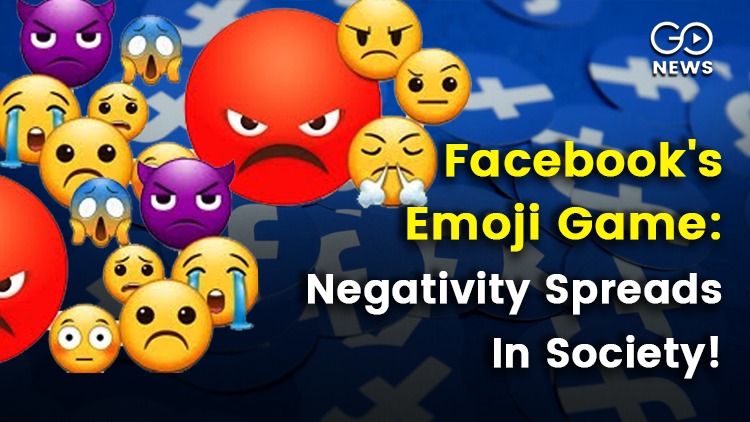Facebook's Emoji Game, Platform Found Pushing Negativity Again

A PHP Error was encountered
Severity: Notice
Message: Trying to access array offset on value of type null
Filename: helpers/article_helper.php
Line Number: 21
Backtrace:
File: /home/gonewsindia/domains/gonewsindia.com/public_html/apps/helpers/article_helper.php
Line: 21
Function: _error_handler
File: /home/gonewsindia/domains/gonewsindia.com/public_html/apps/helpers/article_helper.php
Line: 10
Function: __single
File: /home/gonewsindia/domains/gonewsindia.com/public_html/apps/views/articles-details.php
Line: 76
Function: __construct
File: /home/gonewsindia/domains/gonewsindia.com/public_html/apps/views/default.php
Line: 583
Function: view
File: /home/gonewsindia/domains/gonewsindia.com/public_html/apps/controllers/Home.php
Line: 221
Function: view
File: /home/gonewsindia/domains/gonewsindia.com/public_html/index.php
Line: 293
Function: require_once
The researchers of that study also found that social media sites, not limited just to Facebook, encouraged users to post outrage-generating content which then gets rewarded by a increase in popularity metrics: “We found that daily outrage expression was significantly and positively associated with the amount of social feedback received for the previous day’s outrage expression” the paper says. A 100% increase in feedback for expressing outrage can cause users to increase their outrage expression by 2-3%.” The latest disclosure of the ‘anger generating’ formula based on emojis shows that the algorithm gave 5 times more weightage to posts that evinced angry reactions than those that garnered simple ‘likes’, according to media reports based on internal documents of the social media giant. Facebook had introduced emojis other than the famous ‘like’ (???? ) symbol in a bid to increase engagements. These revelations are part of Frances Haghen’s much-discussed leaks of internal documents. She said that Facebook is an unaccountable organisation which prioritises profits at the cost of the health and safety of kids and democratic values in society. The revelations have put renewed focus and pressure on social media giants, particularly Facebook, to own greater responsibility for the effects of content on their platforms. It is being argued that these are not just “neutral platforms” on which people express their views, but actively influence what people see and say through the designs of their algorithms and services. Past Facebook Controversies Facebook got banned in China in 2009 after the July 2009 Ürümqi riots in Xinjiang Autonomous Region of the country after refusing to share information on alleged ‘terrorists’ to the Chinese government. It is also banned in a few other countries such as North Korea, Iran, and Syria, and has come under heavy fire in Bangladesh for “blasphemous” content. The Cambridge Analytica controversy erupted in 2018 after a whistleblower Christopher Wylie from the company wet public with its activities. It was revealed that the British firm had harvested user data of upto 50 million Facebook users to build psychological profiles to influence elections. This was particularly significant in light of the election of Donald Trump as President of the US in 2016. It was revealed that the app had been collecting data since 2015. Similarly, Facebook had a run in with the Australian government over a law that would require it to pay for the content of news chanels. As a response, Facebook blocked users from the country from sharing or viewing news content. The issue was Australian newsrooms losing revenue to US-based social media giants as more people turn to social media as a primary source of news. Facebook said that the new law "fundamentally misunderstands the relationship between our platform and publishers” and as a result, left it "facing a stark choice: attempt to comply with a law that ignores the realities of this relationship, or stop allowing news content on our services in Australia”. It said it chose the later “with a heavy heart”. The Australian government had opposed the move strongly and said that it demonstrated the "immense market power of these digital social giants”. Calls For Breaking Up Facebook Prosecutors from over 40 states and the US Federal Trade Commission (FTC) called for breaking up Facebook onDecember 9, 2020. In a lawsuit filed in a federal court, it said: “Facebook has maintained its monopoly position by buying up companies that present competitive threats and by imposing restrictive policies that unjustifiably hinder actual or potential rivals that Facebook does not or cannot acquire”. It appealed to the court to order “divestiture of assets, divestiture or reconstruction of businesses (including, but not limited to, Instagram and/or WhatsApp)” and other appropriate relief measures. However, Facebook doubled down, and Mark Zuckerberg, CEO, was quoted as saying: “At the end of the day, if someone’s going to try to threaten something that existential, you go to the mat and you fight” and expressed confidence in wining any legal battle to protect Facebook.
Latest Videos
















